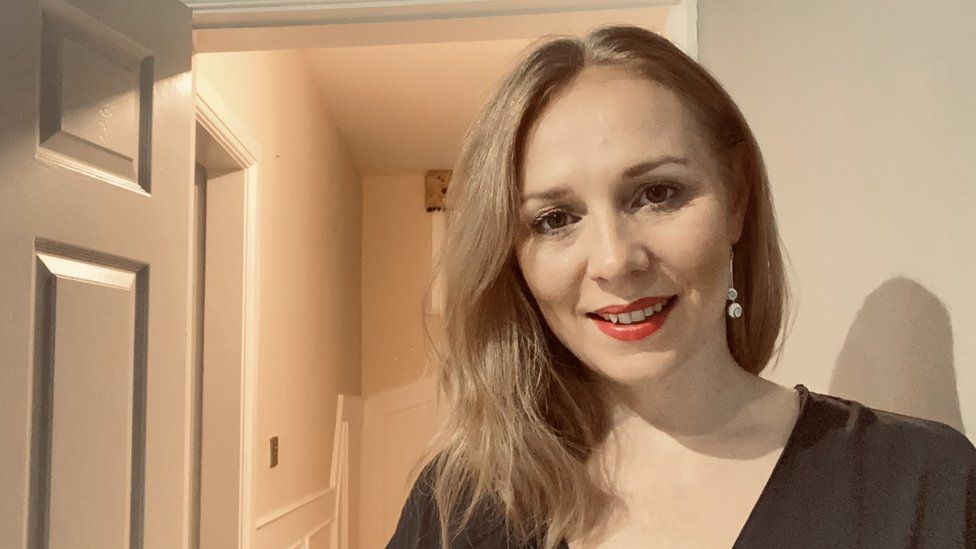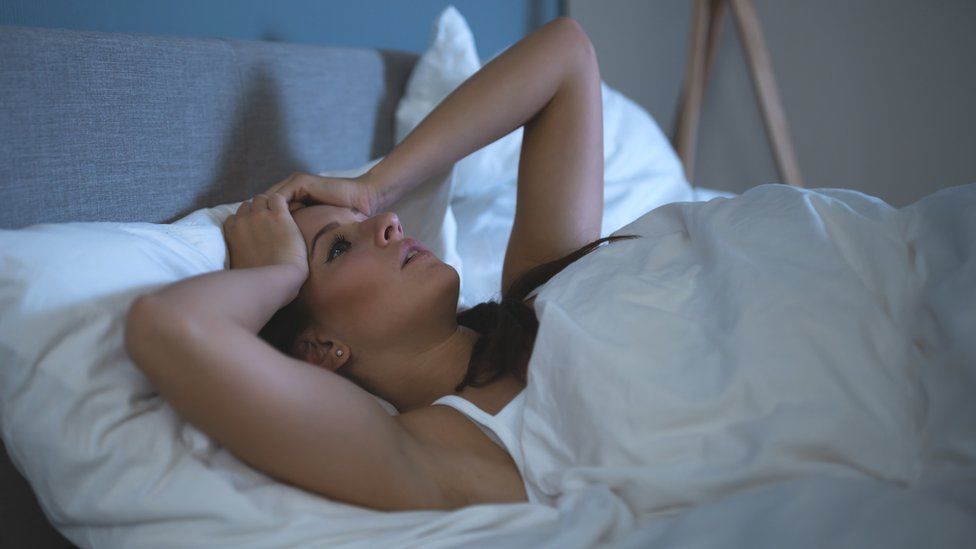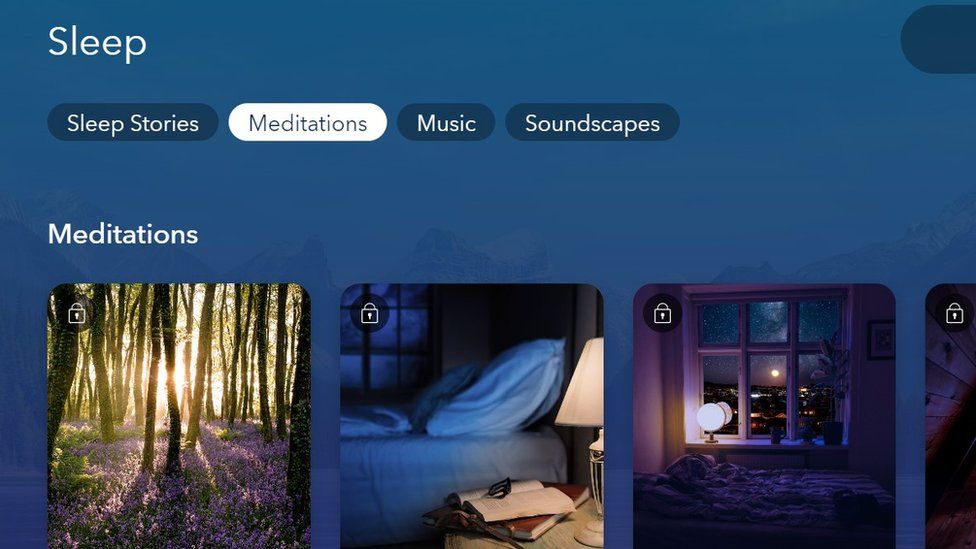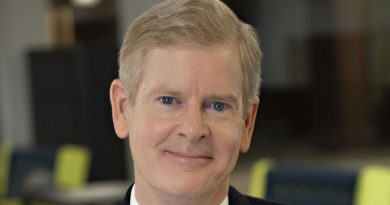The tech helping people get a better night’s sleep

Have you ever laid in bed at night, with sleep tantalisingly out of reach while thoughts ricocheted around your head?
If so, then the plight of Lisa Holland from Chesterfield in Derbyshire, may strike a chord.
“I just stopped sleeping,” she says. Her insomnia had worsened to the point where she was only getting a few hours of shut-eye per night.
Matters came to a head in the early hours of a particularly bad night back in 2016.
The sleepless hours ticked by as a 90-minute motorway drive to Ms Holland’s senior job in the live events industry loomed in the morning – a potentially dangerous journey for someone suffering sleep deprivation.
“I was just pacing around in my bedroom,” says Lisa. “I caught myself in the reflection, and I just looked like a zombie, just walking in circles. And I thought… what are you doing? This is ridiculous.”
Lisa’s experience is becoming increasingly common.
Almost three quarters of people in the UK (71%) don’t get the recommended 7-9 hours of sleep per night, according to a study last year by insurance group Direct Line. It found that one in seven were getting less than five hours.
Could an increased use of apps and other technology designed to help us get to sleep be the solution? Many of us seem to think so.
In total, the global sleep technology sector was worth $15bn (£12.4bn) last year. The same report predicts that it will jump to $67bn by 2030.
Sleep issues can be caused by a wide variety of factors, including stress, shift work and caffeine or alcohol consumption. If you’re part of the “insomniac army”, you may be reading this through a haze of fatigue, mental fogginess or – hopefully not – grumpiness.
But the consequences of prolonged sleeplessness can be a lot more serious.
A lack of sleep plays a role in high blood pressure, heart disease, diabetes, and even mental health problems, according to the UK Health Security Agency (which was previously called Public Health England).

And that spills over to the economy. One report says that sleep depravation costs the UK up to £40bn a year in lost productivity.
It is of course not just a British problem. A third of Americans don’t get enough sleep, according to the US’s Centres For Disease Control and Prevention, which says the situation threatens the nation’s health.
But of course none of this was on Lisa’s mind when she was forced to confront her problem. All she knew was that she needed help.
Her doctor initially prescribed a short course of sleeping tablets – which would knock her out for a few hours at a time, but didn’t guarantee quality rest.
She eventually discovered the phenomenon of sleep stories – which are soothing tales provided via apps and podcasts. She opted for those on the meditation app and website Calm.
“I sleep so much better now,” she says. “Even if I’ve got a lot on at work and I’m thinking about various things – like what I’ve got to do tomorrow, ” she says. “I think it’s a comfort blanket.”
So most nights, she opens the app on her phone, selects a bedtime story, and lets it play through the speaker.
“I think it’s the tone of the voices, how they slow their voices down and leave longer gaps between sentences,” she says. “I think it does something to your thinking and listening brain.”
More and more of us who struggle to get to sleep are a turning to tech for help and it’s not just about soothing bedtime stories.
The burgeoning sleep technology market includes devices to track our slumber patterns, apps providing restful mediation, as well as services to manage medical disorders like sleep apnea or narcolepsy.
Such tech is now being recommended by health agencies. The National Institute for Health and Care Excellence, part of NHS England, last year recommended that people suffering from insomnia try an app called Sleepio.
Sleepio has a virtual sleep assistant called “The Prof”. Powered by AI software, he aims to help users get to sleep more easily.

But despite the positives of all this technology, there can be a downside to using your device in the middle of a sleepless night, according to Lisa.
“You have to pick up your phone, open the app – and if you’ve forgotten to turn down the brightness, it’s like Blackpool illuminations,” she says.
“And of course, then you’re scrolling. You can wake yourself up a little bit. So I’ve set myself my favourites so I can switch between stories as quickly as possible and put the phone straight back down again.”
The potentially stimulating effect of technology is also a concern for sleep expert Alison Francis. “The whole idea of giving the mind a rest from technology, and turning technology off, goes out the window,” she says.
Her advice is for people to try to learn from the technology, so that they can ultimately get to sleep without it. “That way you can be more independent and won’t need to be on the phone all the time,” she says.
Furthermore, she adds that some people will need a more medically-based approach, involving in-person monitoring and a bespoke therapy programme.
Headspace is an app that aims to help users boost their mental wellbeing through meditation. Chief product and design officer Leslie Witt says it very much includes a focus on helping people improve their sleep.
“We realised that we could not be in the business of fostering mental wellbeing, without being in the business of improving sleep,” she says. “Over a third of our members use our sleep content and are what we call sleep-first members – where the primary way they engage with the app is through our sleep stories, our sleep courses our sleep music.”
That figure is said to rise to 40-50% for people who come to Headspace via a workplace provided scheme.


New Tech Economy is a series exploring how technological innovation is set to shape the new emerging economic landscape.

“Workplaces are seeing that sleep is critical,” adds Ms Witt. “But there’s still progress to be made on getting bosses to see how demands on a global workforce can raise sleep-disrupting stress levels.”
Meanwhile, Lisa Holland thinks it’s time we recognised the importance of sleep to our overall health – and turn away from the “always on” culture.
“With the best will in the world, getting up at four in the morning to exercise, and then start my day and being the first one into work and last one out , just wouldn’t work for me,” she says.
“I think more people are realising you don’t have to work 17-18 hours a day. I need a life-work balance and part of that is getting really good sleep.”

